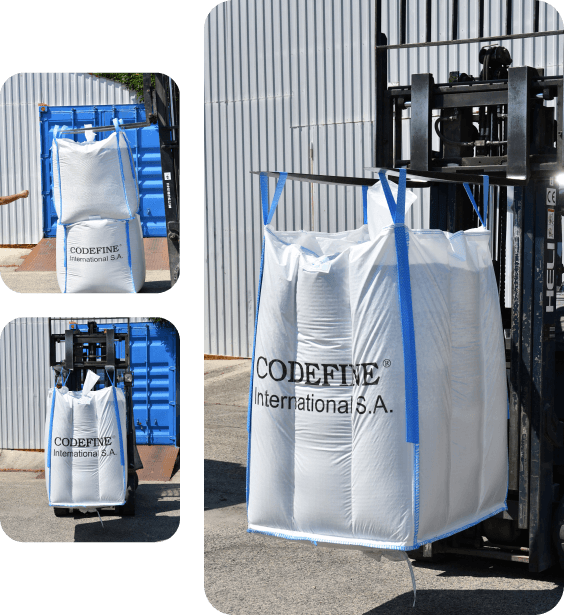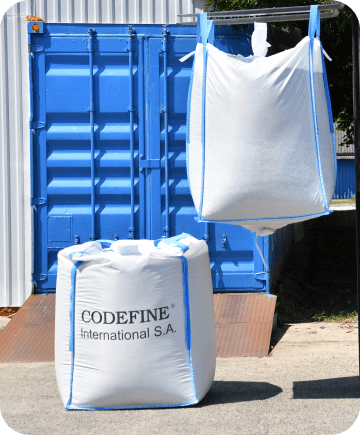Home » Posts Page » Blog » Products and Materials » Navigating Tariffs in the FIBC Industry: Cost Impacts and Strategic Solutions

Recent years have witnessed significant shifts in the tariff structures affecting FIBC bulk bags globally. Most notably, trade tensions between major economies have resulted in retaliatory tariffs that directly impact polypropylene products, including the woven material used in FIBC manufacturing. These tariffs, often ranging from 10% to 25%, have created immediate cost pressures on importers and distributors of bulk bags. The polypropylene resin market, already subject to price volatility, faces additional pressures when crossing certain borders, creating cascading effects throughout the supply chain.
The tariff situation varies dramatically by country of origin and destination market. While some manufacturing hubs like India and Vietnam have maintained relatively stable trade relations with Western markets, others face more significant barriers. The complex web of bilateral trade agreements, preferential trading arrangements, and most-favored-nation statuses creates a varied landscape where strategic sourcing decisions can yield substantial cost differences. Manufacturers with production facilities in multiple countries now find themselves rebalancing production volumes to optimize for tariff efficiency, sometimes at the expense of operational simplicity.
Diversifying FIBC bulk bag sourcing has emerged as a primary strategy for mitigating tariff impacts. Forward-thinking companies are expanding their supplier base across multiple countries, creating redundancy that provides both tariff optimization and risk management benefits. This approach requires careful balancing of quality consistency, logistics complexity, and minimum order requirements across a broader supplier network. Many importers are developing scoring systems that factor in tariff exposure alongside traditional metrics like price, quality, and lead time to make more sophisticated sourcing decisions.
Leveraging free trade agreements presents another strategic avenue for tariff mitigation. Companies that invest in understanding the nuances of trade agreements like USMCA, RCEP, or CPTPP can identify significant opportunities for tariff reduction or elimination. However, capitalizing on these agreements requires meeting specific rules of origin and documentation requirements. Restructuring supply chains to qualify for preferential treatment under these agreements often requires careful planning and sometimes significant investment. Leading FIBC importers are developing specialized expertise in trade agreement compliance or partnering with customs brokers who specialize in identifying and capturing these opportunities.
Proper tariff classification represents the foundation of effective customs compliance for FIBC imports. The Harmonized Tariff Schedule classification for flexible intermediate bulk containers can vary based on specific construction features, materials, and intended use. For instance, bags with specific hazardous material certifications or special coatings may qualify for different tariff treatments. Maintaining detailed technical specifications and working with customs classification experts ensures accurate classification, preventing both overpayment and the risks associated with underpayment of duties. Proactive importers are developing comprehensive product classification libraries that document the rationale for each classification decision.
Beyond classification, customs compliance best practices include maintaining thorough documentation of country of origin, manufacturing processes, and material sourcing. Customs authorities increasingly scrutinize these factors when determining applicable duty rates, particularly in cases where anti-dumping or countervailing duties may apply. Developing robust internal compliance programs, conducting regular audits, and providing staff training on documentation requirements all contribute to smoother customs clearance and reduced risk of costly delays or penalties. Many leading importers are implementing digital documentation systems that ensure consistency and accessibility of critical compliance information across global operations.
Staying ahead of tariff policy trends requires systematic monitoring of trade policy developments and their potential impacts on FIBC supply chains. Establishing regular communication channels with industry associations, trade policy experts, and government affairs specialists provides early warning of potential changes. Sophisticated companies are developing scenario planning models that quantify the impact of potential tariff changes on their specific product mix and sourcing patterns. These models enable more informed decision-making about inventory levels, contract negotiations, and capital investments in the face of policy uncertainty.
Building flexibility into procurement strategies represents the ultimate hedge against tariff volatility. This includes negotiating contracts with provisions for tariff adjustments, developing relationships with alternative suppliers before they become necessary, and investing in supply chain visibility technologies that enable rapid response to changing conditions. Some companies are exploring vertical integration strategies, either through direct investment in manufacturing capabilities or through strategic partnerships that create preferential access to production capacity. Others are redesigning products to use materials or components that face lower tariff exposure. This strategic flexibility, while requiring upfront investment, creates long-term resilience against the inevitable shifts in global trade policy.
Codefine has established itself as a leader in helping clients minimize the impact of tariffs on their complete packaging solution needs, including FIBC bulk bags, PP bags, container liners, jute bags for produce, and woven PP bags. Our comprehensive approach begins with a detailed analysis of current sourcing patterns, identifying specific tariff vulnerabilities and opportunities for optimization. By leveraging our global manufacturing network across multiple countries, we create customized sourcing strategies that balance tariff exposure with quality, lead time, and cost considerations for clients across diverse industries including agriculture, animal products, construction, food, mining, and pharmaceuticals. Our proprietary tariff impact calculator enables clients to quantify the financial implications of various sourcing scenarios, making the business case for strategic changes clear and compelling.
Our value-added services extend beyond sourcing to encompass the entire compliance and documentation process. Codefine’s customs compliance experts maintain current knowledge of tariff classifications and documentation requirements across all major markets. We provide comprehensive documentation packages that streamline customs clearance and minimize the risk of delays or penalties. For clients pursuing free trade agreement benefits, our specialized team guides the process of meeting qualification requirements and preparing certification documentation. This holistic approach reduces both the direct costs of tariffs and the administrative burden of managing them.
